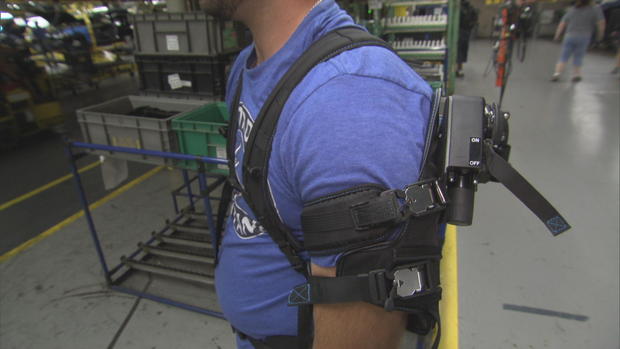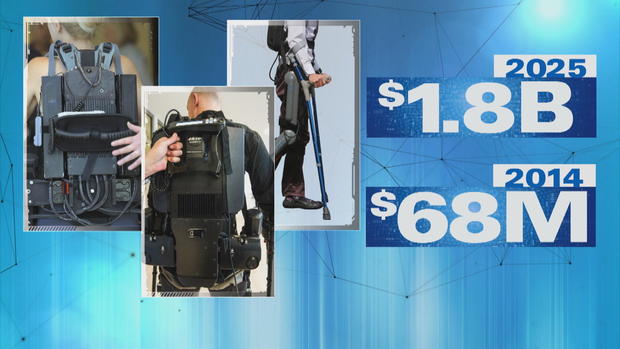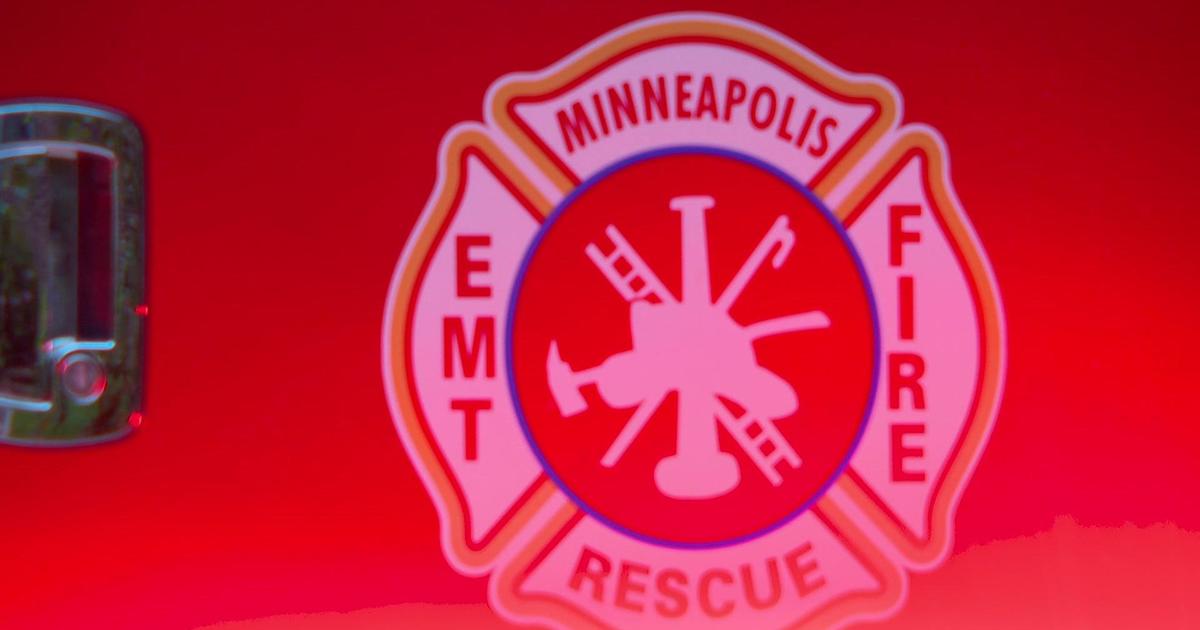Ford unveils exoskeleton vests to lighten the load for workers
FLAT ROCK, Mich. — Ford Motor Company will unveil its plan Tuesday to use wearable technology to lighten the load on some of its human workers. Exoskeleton vests are being introduced in 15 auto plants in seven countries, and the business of providing technology to augment the human workforce is expected to boom in the coming years.
As CBS News transportation correspondent Kris Van Cleave reports, the vest Ford is giving to employees cost around $6,000. But the goal is to reduce injuries, which is both good for workers and the company, which could save money.
For six years, Nicholas Gotts spends much of the day on the Ford Mustang assembly line, reaching up, and turning screws.
"My gun is about a pound or two but you lift it up 500 times a day," Gotts said.
But unlike most workers at Ford's Flat Rock plant, Gotts gets a little extra boost.
"They call me rocket man or Superman all the time or Mr. Incredible," he said.
The exoskeleton he wears helps maintain good posture, adding up to 15 pounds of support to each arm when it's raised up.
"Wearing the suit, I'm not 'Oh, I'm tired,' I can go home and have fun and go play catch with the daughter," Gotts said. "Quality of life is a lot better with the suit."
Exoskeletons date back to at least the 1960s when General Electric developed a giant prototype for the military, and they've shown promise in helping people with spinal cord injuries walk. Analysts expect the exoskeleton market to grow from $68 million in 2014 to $1.8 billion by 2025.
Marty Smets, an ergonomics expert at Ford, is focusing on shoulder injuries. They can cost $100,000 per employee to fix and rehab.
"If you think about 15 pounds applied several thousand times over the course of a shift, we figure it's the equivalent of not having to lift the mass of 20 Mustangs per day per arm," Smets said.
At Boeing's Charleston, South Carolina plant, they have been evaluating suits for the past couple of years and have found some real worker benefits. The company believes that one day, the suits could be standard issue to everyone on the line building airplanes.
Structure mechanic Tyrone Washington showed CBS News how it works at the plant's training center. He was part of a six-month pilot program on the line that builds the 787.
"It's a dream come true to be able to be part of all new technology," he said.
Not every worker who builds a Ford will end up needing one of those suits. Some of the jobs just don't require them. But they are going to become a lot more common on the line.





